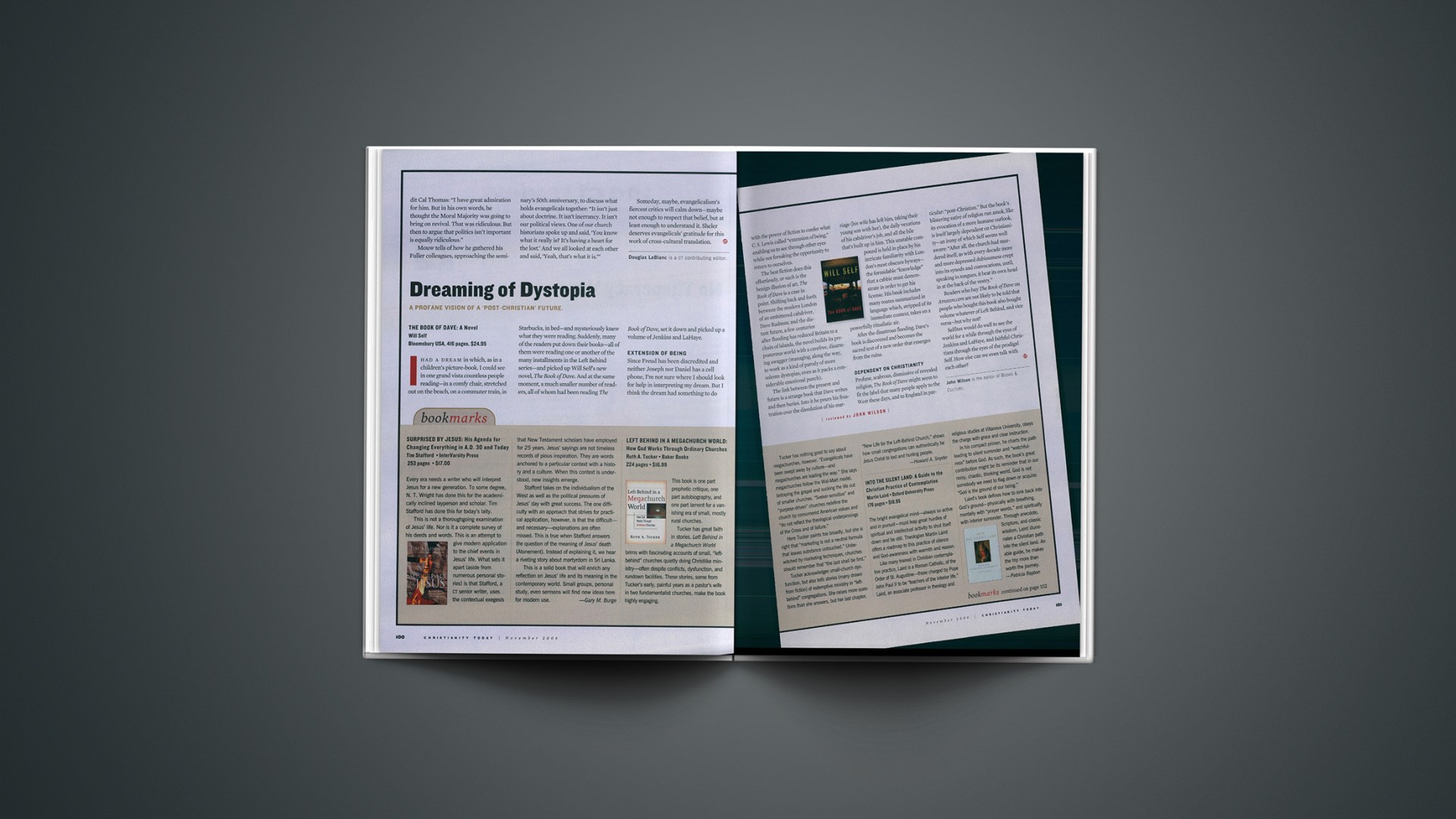I had a dream in which, as in a children’s picture-book, I could see in one grand vista countless people reading—in a comfy chair, stretched out on the beach, on a commuter train, in Starbucks, in bed—and mysteriously knew what they were reading. Suddenly, many of the readers put down their books—all of them were reading one or another of the many installments in the Left Behind series—and picked up Will Self’s new novel, The Book of Dave. And at the same moment, a much smaller number of readers, all of whom had been reading The Book of Dave, set it down and picked up a volume of Jenkins and LaHaye.
Extension of Being
Since Freud has been discredited and neither Joseph nor Daniel has a cell phone, I’m not sure where I should look for help in interpreting my dream. But I think the dream had something to do with the power of fiction to confer what C. S. Lewis called “extension of being,” enabling us to see through other eyes while not forsaking the opportunity to return to ourselves.
The best fiction does this effortlessly, or such is the benign illusion of art. The Book of Dave is a case in point. Shifting back and forth between the modern London of an embittered cabdriver, Dave Rudman, and the distant future, a few centuries after flooding has reduced Britain to a chain of islands, the novel builds its preposterous world with a carefree, disarming swagger (managing, along the way, to work as a kind of parody of more solemn dystopias, even as it packs a considerable emotional punch).
The link between the present and future is a strange book that Dave writes and then buries. Into it he pours his frustration over the dissolution of his marriage (his wife has left him, taking their young son with her), the daily vexations of his cabdriver’s job, and all the bile that’s built up in him. This unstable compound is held in place by his intricate familiarity with London’s most obscure byways—the formidable “knowledge” that a cabbie must demonstrate in order to get his license. His book includes many routes summarized in language which, stripped of its immediate context, takes on a powerfully ritualistic air.
After the disastrous flooding, Dave’s book is discovered and becomes the sacred text of a new order that emerges from the ruins.
Dependent on Christianity
Profane, scabrous, dismissive of revealed religion, The Book of Dave might seem to fit the label that many people apply to the West these days, and to England in particular: “post-Christian.” But the book’s blistering satire of religion run amok, like its evocation of a more humane outlook, is itself largely dependent on Christianity—an irony of which Self seems well aware: “After all, the church had murdered itself, as with every decade more and more depressed dubiousness crept into its synods and convocations, until, speaking in tongues, it beat its own head in at the back of the vestry.”
Readers who buy The Book of Dave on Amazon.com are not likely to be told that people who bought this book also bought volume whatever of Left Behind, and vice versa—but why not?
Selfites would do well to see the world for a while through the eyes of Jenkins and LaHaye, and faithful Christians through the eyes of the prodigal Self. How else can we even talk with each other?
John Wilson is the editor of Books &Culture.
Copyright © 2006 Christianity Today. Click for reprint information.
Related Elsewhere:
The Book of Dave is available from Amazon.com and other retailers.
Will Self has an official site with book excerpts, a blog, commentary, and some other categories. Warning: includes nudity.










